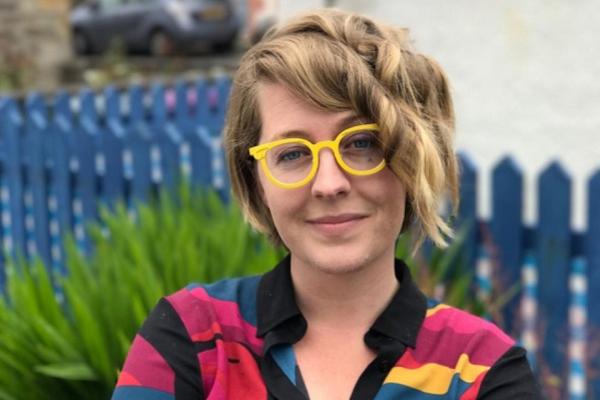
Please join us for this second entry in our 2021-2022 Lecture Series, also the keynote lecture for the 8th annual Medieval and Renaissance Graduate Student Association Symposium “Modalities of Premodern Media”! This event, as with all the lectures in our annual series, is free and open to the public.
**Please register at https://osu.zoom.us/meeting/register/tJwqdO2vqTIvE9LwXkpmzQ5rB2iOkcV34X6i to receive the Zoom meeting room link.**
Abstract: How did early modern readers organize information about the past? Lacking tools like short-title catalogues, the ability to photograph research collections, or relatively recent innovations like digital databases, they often saved fragments of earlier media. And, intuitively, this makes sense. Small and plentiful, these scraps were easily stored in portfolios or shared through the post and thus facilitated the rapid dissemination of knowledge across global networks of amateur media historians. They were also cheap, even free; and although each individual piece might be worth little, in the aggregate these fragments accrued financial and, more importantly, historical value.
This talk considers the question of early modern metadata by turning to the collecting habits of one late-seventeenth-century man: John Bagford. A shoemaker-turned-bibliographer, Bagford voraciously collected anything related to the history of literature, language, and books, from fragments of medieval parchment to ream wrappers. Among the his hundreds of volumes of fragments now at the British Library are several that contain torn-out title pages. Collectively, these form a kind of material short-title catalogue, a physical STC made from the literal imprints of books. This talk will address Bagford’s early modern digital humanities work and my own contemporary efforts to create digital editions of his remarkable scrapbooks.
Bio: Whitney Trettien researches the history of the book and other text technologies from print to digital. Her work is invested in exploring the past to better understand our present media environment.
Her forthcoming book Cut/Copy/Paste — being staged on the Manifold Scholarship platform through University of Minnesota Press — identifies three fringe communities that assembled books from fragments of paper media in the seventeenth century. Using digital methods, Trettien's work places these seemingly idiosyncratic textual practices and their materialist poetics within a broader field of literary production. She has published on textile metaphors in the poetry of Isabella Whitney, print-on-demand publishing and Milton's Areopagitica, and digital humanities, and has co-edited Provoke!, a web-based collection of sonic scholarship. A print companion, Digital Sound Studies, is forthcoming from Duke University Press. She is also the co-editor and co-designer of thresholds, an occasional digital zine for creative/critical interventions.
Trettien received her PhD from Duke University and has an MS in Comparative Media Studies from MIT.
This event will be presented with automated closed captions. If you wish to request traditional CART services or other accommodations, please contact cmrs@osu.edu. Requests made by about 10 days before the event will generally allow us to provide seamless access, but the university will make every effort to meet requests made after this date.
